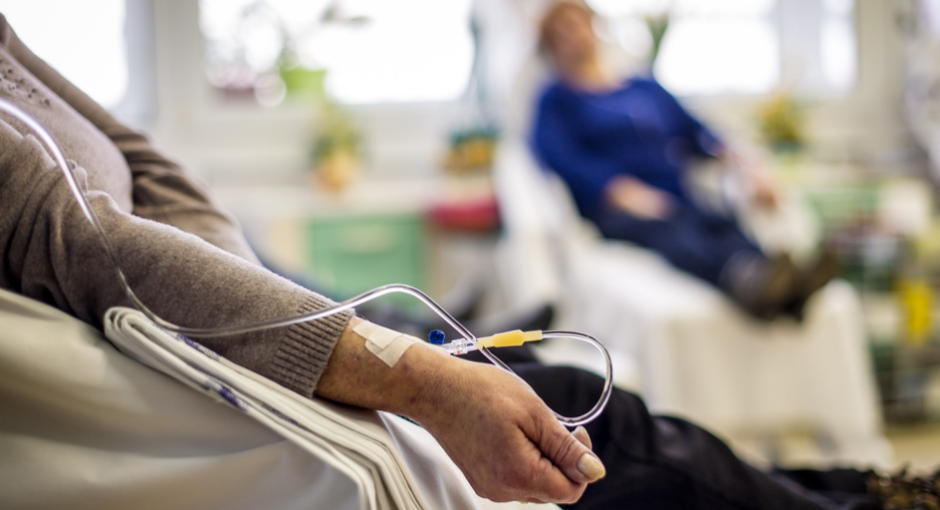The American Hospital Association (AHA) and ASHP (the American Society of Health-System Pharmacists) want the U.S. Food and Drug Administration (FDA) to “take appropriate action” against white bagging—the health care payer requirement that hospitals obtain specialty drugs for insured patients from the payer’s chosen specialty pharmacy or pharmacies, not from the hospital’s in-house or contract specialty pharmacies.
White bagging jeopardizes patient safety and compromises prescription drug supply chain security, AHA and ASHP told FDA Acting Administrator Janet Woodcock in a recent letter. While not mentioned in the letter, white bagging also deprives hospitals of 340B revenue, because the payer’s chosen specialty pharmacy is the drug’s buyer, not the hospital. The practice takes away a 340B hospital’s ability to buy specialty drugs at a discount and bill payers at a rate above acquisition cost. The targeted drugs often are for outpatient cancer treatment, and the margins for 340B hospitals can be significant.
The payer presumably spends less, because it likely reimburses its chosen specialty pharmacy less than what it pays hospitals for 340B purchased drugs. 340B hospitals say not being able to buy and bill 340B purchased drugs deprives them of revenue to stretch resources, cover the cost of uncompensated or unreimbursed care, or in the case of rural hospitals, keep their doors open.
Anthem Blue Cross Blue Shield and UnitedHealthcare are among the payers expanding white bagging.
In eight of the 14 states in which Anthem does business, it has designated, or is in the process of designating, CVS Specialty as hospitals’ sole source of obtaining select specialty medications administered in the outpatient setting and covered under the insured patient’s medical benefit.
“Providers should continue to submit for administration of the medication, but not bill for the medication itself,” Anthem told California providers in June 2020. “CVS Specialty will bill us, and we will pay them directly. If specialty medications are obtained through other pharmacies, the claim will be denied.”
Anthem rolled out the same policy in New York (effective Jan. 1), Georgia (March 1), and Indiana (April 1), and will implement it in Colorado, New Hampshire, Ohio (June 1), and Wisconsin (July 1).
Starting June 7, at least five of UnitedHealthcare’s commercial plans will require “outpatient hospitals” to obtain 12 oncology care supportive medications from its contracted specialty pharmacy providers. Some of its commercial plans already have the same policy for other specialty medications.
A UnitedHealthcare website post about its new policy for oncology medications says, “The specialty pharmacy will bill UnitedHealthcare directly for the medication under the member’s medical benefit,” and, “Hospitals may only seek reimbursement from UnitedHealthcare for administration of the medication and not for the medication itself.”
“Any white bagging policy that would apply to a 340B drug would potentially pull any 340B revenue away from the hospital,” said AHA Senior Associate Director of Policy Mark Howell. “But the bigger issues are patient safety, supply chain issues, and the ability to make sure you have the right amount of drug for the right patient at the right time.”
ASHP Vice President of Government Relations Tom Kraus echoed Howell.
“The most concerning impact is on patient safety,” Kraus said. “We need to start there.”
“Payers are imposing their specialty pharmacies on health systems trying to provide coordinated patient care,” Kraus said. “It flies in the face of all the efforts the FDA has been making to improve the security of the drug supply chain. This says, you cannot have a coordinated system of patient care, in which a physician at a hospital identifies a needed drug, it comes from a known source at that hospital, and it is administered at that hospital.”
“Are they doing this specifically to undermine the 340B program?” Kraus asked. “I don’t know. But functionally, yes, they are undermining the 340B program.”
“A 340B entity would normally dispense these drugs from its own pharmacy, have the benefit of the 340B discount, get paid for that drug, and use that markup to supplement patient care in that facility. That’s the whole point of the 340B program,” Kraus said. “What they’re doing is, they’re sucking drug volume out of hospitals. This totally removes the value of the 340B program for that safety net hospital to supplement patient care.”


